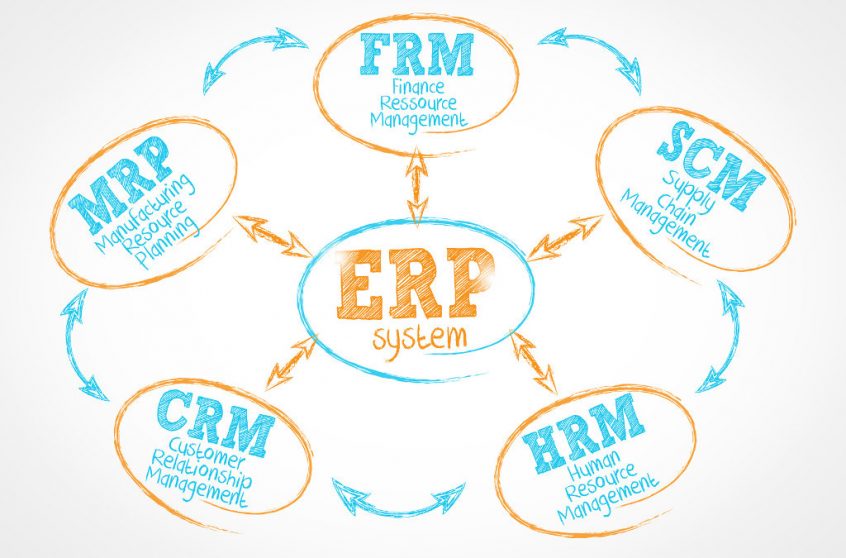Share this Post
Streamlining business processes, improving the interactions and experiences of consumers with an organisation, and empowering workers to make better and faster decisions based on the information and resources available to them, are all crucial elements of enterprise operations.
With technology affecting all aspects of life, it’s no surprise that there’s software available to assist businesses in achieving all this. In this regard, the acronyms CRM and ERP are often bandied around – knowledgeably, as if everyone should immediately understand what they mean.
Just in case you don’t know (or to refresh your memory, if you do), here’s a run-down of the distinctions between the two – and how they can apply to your business.
ERP
Enterprise Resource Planning or ERP aims at streamlining business operations and improving productivity throughout the organisation, by the integrated management of all business processes. A centralised database is used to share information between various departments, and different business processes are managed via a suite of inter-connected applications.
Effective data-handling and sharing are at the heart of Enterprise Resource Planning, and ERP software enables employees at all levels (inventory, supply chain, warehousing, accounting, etc.) to update the shared platform with real-time information that’s available to users who require it in other departments. As well as facilitating operations within and between the divisions of an enterprise, ERP software gives managers an overview of the company’s situation at any given time.
Most ERP software deployments address back office issues, so administrative and human resource (HR) departments can benefit directly from these applications.
The software itself touches on all aspects of business operations, and is multi-faceted. It may consist of a single suite of applications, or be constructed using different modules from a variety of vendors. Features typically include:
ERP software solutions typically facilitate and automate the flow of information throughout an enterprise. Centralised resources provide visibility and integration across all business processes, together with performance analysis and reporting. The result is greater efficiency and more productive business processes, and an increase in revenue due to the reduced costs associated with effectively streamlined operations.
CRM
Customer Relationship Management or CRM is a branch of operations focusing on the consumer-facing aspects of a business. CRM systems are typically used by sales, marketing, and business development divisions to chart and manage interactions throughout the buyer’s journey or customer life-cycle.
CRM software should be capable of monitoring and capturing every interaction that a business has with its customers. This may include names, addresses, demographic and contact data, in conjunction with transaction records, web site activity, Technical Support or service calls, and other relevant information.
As some of this data may originate from activities such as filling out forms or call transcripts, CRM systems often integrate with marketing automation and contact centre applications. When used in conjunction with other applications, a CRM system may or may not share a common database with them, depending on the circumstances and level of integration.
CRM solutions focus on an organisation’s front office sales processes, with an emphasis on optimising the flow of information between marketing and sales activities, and the effective deployment of customer-facing applications.
Rather than reducing costs, CRM software is dedicated to directly increasing revenue through increased sales. This is accomplished through an improved relationship with the customer, which increases brand loyalty and the occurrence of continuing and repeat sales.
Never The Twain?
Smaller businesses with fewer departments may be better served initially by a CRM system, which can help to boost their sales. Larger-scale enterprises with more complex business processes may opt for an ERP solution, or a combination of ERP and CRM deployments (depending on their circumstances and requirements).
But CRM and ERP cannot exist separate from each other in a vacuum. Enterprise success relies on a level of integration between the two functions – a fact attested to by the inclusion of CRM modules within many Enterprise Resource Planning solutions.
Share this Post


